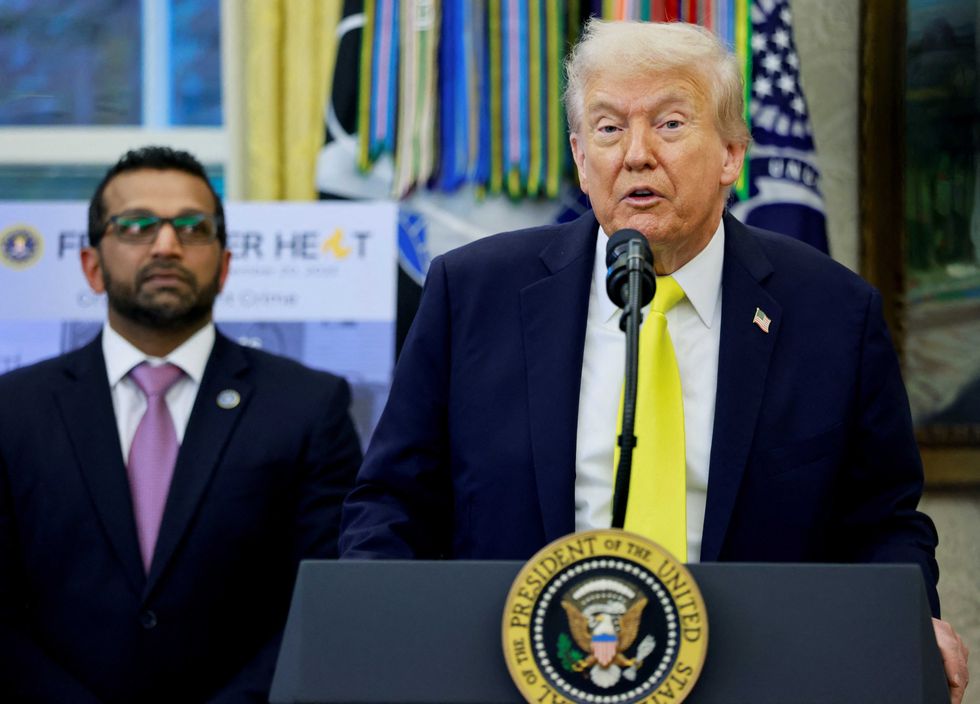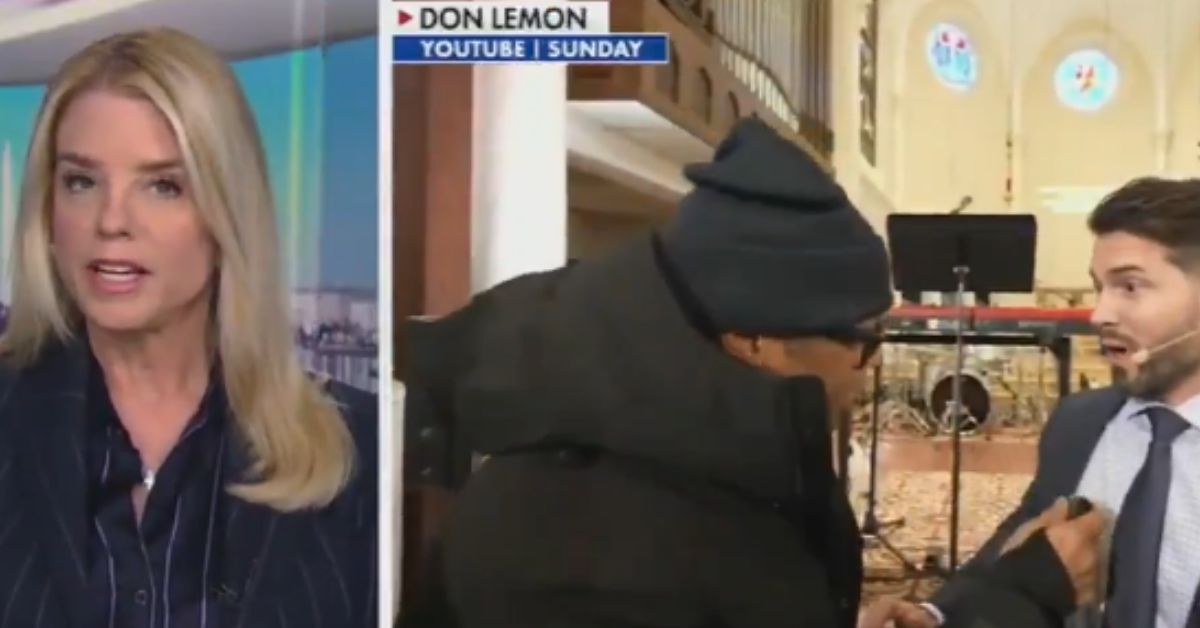**FBI Leadership Waived Polygraph Exams for Top Officials, Sources Say**
FBI Director Kash Patel granted waivers to Deputy Director Dan Bongino and two other newly hired senior FBI staff members, exempting them from passing polygraph exams normally required to access America’s most sensitive classified information, according to a former senior FBI official and several other government officials.
## Controversial Appointment of Dan Bongino
Bongino’s role as the FBI’s second-highest-ranking official places him in charge of the agency’s daily operations, including surveillance missions, coordination with intelligence partners, and oversight of the bureau’s 56 field offices. The deputy director also receives some of the nation’s top secrets, including the President’s Daily Brief—an intelligence document compiled by the CIA and the National Security Agency.
Sources familiar with the matter say Bongino’s ascent without completing the standard FBI background check is unprecedented. While Bongino previously served in the Secret Service and was a New York City police officer, he gained significant public attention through conservative talk shows and podcasts, notably taking over Rush Limbaugh’s radio spots. Bongino is known for promoting conspiracy theories about the 2020 election and expressing strong allegiance to former President Donald Trump, often criticizing the agency he now helps lead.
Bongino’s tenure has been marked by public disputes with senior officials and accusations—denied by Bongino—that he leaked information to the press. In August, Trump appointed Missouri Attorney General Andrew Bailey as co-deputy director at the FBI, prompting speculation about White House confidence in Bongino. Nevertheless, Bongino remains in his position.
## Unprecedented Polygraph Waivers
ProPublica could not confirm whether Bongino ever sat for a polygraph exam or the outcome. However, the existence of a waiver suggests he may not have passed, though a former FBI official noted Bongino could have received a preemptive exemption.
When contacted, the FBI denied that Bongino or other senior staff failed polygraph tests, with spokesperson Ben Williamson saying, “It is false that the individuals you referenced failed polygraphs.” Williamson added, “The FBI follows all laws and procedures… this article is riddled with falsehoods… it misrepresents polygraph protocol, inaccurately portrays FBI security measures, and makes multiple false claims about FBI employees who have done nothing wrong.” The agency did not specify what it considered false.
Polygraph exams are not technically “pass/fail,” but applicants are not cleared if the examiner detects deception or cannot validate their answers. Officials said results can be “inconclusive,” which does not meet FBI hiring or clearance standards.
The FBI spokesperson described the three officials in question as Schedule C political appointees, suggesting they were “not required” to undergo polygraph exams. However, Daniel Meyer, former Inspector General for the Intelligence Community, and three other national security lawyers disputed this, noting FBI employment guidelines stipulate all employees must receive a Top Secret clearance after a background check, including a polygraph exam.
## How Did They Survive?
Former FBI officials expressed surprise at waivers being granted in senior roles. One stated that, under former Director Christopher Wray, only one waiver was issued over seven years, for a subject matter expert with inconclusive polygraph results.
Two other officials—Marshall Yates, the FBI’s congressional liaison, and Nicole Rucker, Patel’s assistant—received waivers after not clearing their polygraphs, sources said. Neither have prior FBI experience, and neither occupy roles as high-profile as Bongino’s.
Polygraph questions typically cover drug use, criminal history, foreign contacts, and handling classified information. Results are analyzed for deception or inconclusiveness, with a second chance offered for inconclusive outcomes. Bob Anderson, a former FBI counterintelligence executive, said, “If somebody failed those polygraphs in my time, most likely they would be removed out of the classified environment until that could get cleared.”
In 2024, an employee in the FBI’s Security Division filed a formal complaint, alleging the waivers violated agency policy. Complaints were also shared with the Department of Justice’s Office of the Inspector General.
## Key Staff Backgrounds
According to her resume, Nicole Rucker, 40, previously assisted Stephen Miller, Trump’s architect of immigration policy, and had insight into FBI operations and Patel’s travel. The White House states Rucker does not share FBI operations info with Miller.
Marshall Yates, 37, was the former executive director of the Election Integrity Network and has access to internal FBI files and active briefings with lawmakers. Historically, this job was staffed by nonpartisan career officials.
Patel, Bongino, Yates, Rucker, and Turner did not respond to requests for comment.
## Senate Inquiry
Senator Dick Durbin raised concerns about FBI leadership not passing polygraphs during a hearing with Patel. Durbin asked Patel if members of his executive team had “disqualifying alerts on their polygraphs,” but Patel refused to answer. Durbin later commented, “Reports of disqualifying alerts on polygraphs by senior FBI officials… are deeply alarming.”
## About Polygraph Exams
Polygraph exams use physiological monitoring to measure heart rate, blood pressure, and perspiration during yes-or-no questioning. Despite questions over efficacy, polygraphs are standard in U.S. law enforcement and intelligence agency hiring. Introduced at FBI in 1994, polygraphs are part of a broader background check evaluating national security or suitability concerns.
SCI (Sensitive Compartmented Information) clearance is required for staff in the FBI director’s office, granting access to America’s most sensitive intelligence. Bongino, Yates, and Rucker all obtained SCI clearances through waivers, sources said.
## FBI Purge and Politicization
Since January, more than 50 career FBI officials have been fired or pushed out, according to a ProPublica analysis, including those involved in politically sensitive investigations. Patel has justified firings under Article II of the Constitution—a practice now facing court challenges. Publicly, some firings have been linked to alleged misconduct in Trump-related investigations.
Former acting FBI Director Brian Driscoll has sued Patel, Bondi, and the FBI, alleging forced political loyalty and wrongful firing. The FBI has declined to comment on the suit.
## Polygraph Use as Internal Tool
The FBI has reportedly used polygraphs with senior employees to probe whether they criticized Patel or leaked details to media—a practice first reported by the New York Times.
## Marshall Yates and Nicole Rucker’s Paths
Yates has been a central figure responding to Senate Judiciary Chairman Chuck Grassley’s inquiries and was reportedly involved in identifying FBI employees who investigated Trump, several of whom were later fired by Patel. His previous jobs include serving as chief of staff for Rep. Mo Brooks and counsel to Rep. Thomas Massie, both outspoken critics of the FBI.
Nicole Rucker, listed online as “Nikole,” is described as Patel’s personal assistant. She joined Patel on a recent foreign trip to London, attending sensitive meetings. On arrival at the FBI, Rucker initially worked without a security clearance, requiring escort by Security Division deputy Robert Turner. She later obtained clearance.
Rucker’s background includes stints at the National Museum of African American History and Culture and Ultra Electronics, a British defense contractor, as well as founding a personal concierge service. According to her ex-husband, Joseph Churchville, Rucker is “tenacious” and “destined for something greater.”
—
*Have information or questions about FBI security protocols? Contact the author or share your comments below.*
https://www.alternet.org/trump-fbi-director-waived-polygraph-security-screening-for-dan-bongino-two-other-senior-staff/




